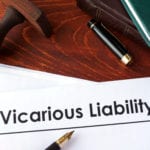Continuing Your Existing Business Under the New Business Corporations Act
The Companies Act, enacted in 1888, currently governs all corporations in PEI. Other noteworthy items from that same year include the release of Johnson & Johnson’s first commercial first aid kit, Leroy Buffington’s patent of a system to build skyscrapers, and a Scottish inventor’s patent of the first practical pneumatic or inflatable tire. Given that this Act has remained substantially unrevised since it’s enactment, we are happy to say that on June 12, 2018, the PEI government passed Bill No. 12, which will bring us the Business Corporations Act.
The Act is not yet in effect, but as we await a date to be set by the government, it is important for you to consider its effects on your already incorporated business. Don’t worry- you don’t need to re-incorporate, but you will need to take some steps to “continue” your existing corporation under this new legislation. A continuance allows a corporation to effectively re-incorporate (without the excessive costs of incorporation) into a new piece of legislation. The process involves being exported out of one piece of legislation and being imported into another.
That’s where we come in! The talented lawyers at Key Murray Law can help ensure this “move” is stress free. Instead of boxes and packing tape, all you will need are Articles of Continuance, a Certificate of Continuance, and new share certificates. While these aren’t typical items you can find in your local hardware store, the new Business Corporation Act gives you 3 years to put them together.
What are Articles of Continuance?
Articles of Continuance are very similar to your Articles of Incorporation and will subsequently become your new Articles of Incorporation under the new Act. Any shareholders who are entitled to vote at shareholder meetings will need to adopt these Articles of Continuance, authorize the directors of the company to apply for a Certificate of Continuance, and may also adopt any bylaws to become effective on the issue of the Certificate of Continuance.
What is a Certificate of Continuance?
As mentioned above, “continuing” your existing corporation essentially means exporting it out of the Companies Act and importing it into the Business Corporations Act. To do this, you simply apply to the Director of Corporations for a Certificate of Continuance. Upon receiving your Articles of Continuance and shareholder ratification by special resolution, the Director of Corporations will issue a Certificate of Continuance to you and send a copy on your behalf to the official governing body for corporations in PEI. This Certificate will show the date when your corporation was imported into the Business Corporations Act, will deem your Articles of Continuance to be your Articles of Incorporation and will deem the Certificate itself to be the Certificate of Incorporation for your now continued corporation.
Issuing New Shares
If your existing bylaws require a shareholder of the company to surrender the shareholder’s certificate for the purpose of having it cancelled and replaced by a new one, you will need to do just that. If not, you can amend your bylaws to allow for this, and then go ahead with the reissuing of new shares.
What doesn’t change?
Everything else!
Your corporation still owns its corporate property, it is still liable for its current and long term debt obligations, and any existing claims or judgments against it are unaffected.
It is important to be aware that if you fail to continue your corporation in the 3 year time frame, is deemed to dissolve at the expiry of that time.
To get a jump start on these necessary steps under the new Act, please contact one of Key Murray Law’s experienced corporate lawyers.
Tessa Hills
Article Clerk
902-368-7810
tessa.hills@keymurraylaw.com
Legal information appearing in this article and elsewhere on Key Murray Law’s website is intended for informational purposes only and is not intended to substitute for or replace any legal or other professional advice. If you have specific concerns or a situation in which you require legal advice, you should consult directly with one of our lawyers.

